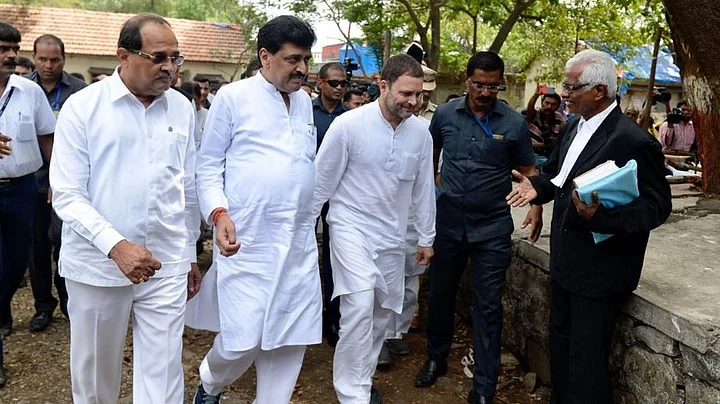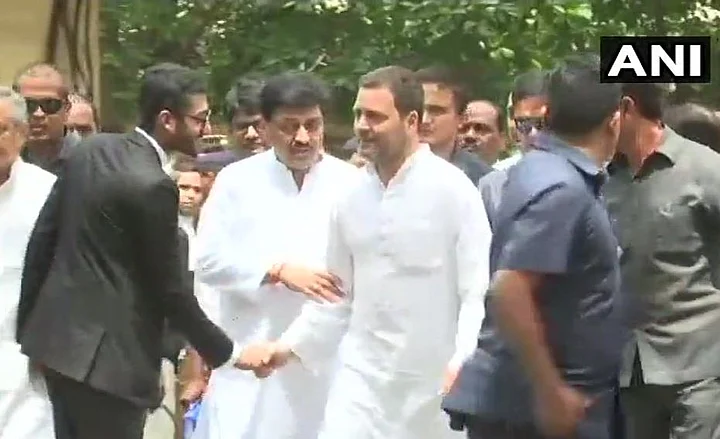A Bhiwandi court in Thane, on 10 June, framed charges against Congress president Rahul Gandhi in a criminal defamation case filed by Rajesh Kunte of Rashtriya Swyamsevak Sangh (RSS). The court will hear the case next on 10 August.
The charges have reportedly been filed under Section 499 and Section 500 (Punishment for defamation) of the Indian Penal Code. Gandhi, however, pleaded not guilty before the court, reported ANI.
Speaking to the reporters outside the court, Gandhi said that his fight against the government was for the farmers and the employment of the country’s youth.
“Our fight is against the policies of the prime minister. Farmers are frustrated and the prime minister does not talk about employment for youth. This government is only for the rich. Let them (the BJP and the RSS) slap as many cases as they want against me. Ours is a fight of ideology. We will fight them and win.Rahul Gandhi, Congress President
Gandhi’s lawyer Narayan Iyer told The Quint that the Congress leader will respond to all the allegations and that the party would present all the facts and documents in the court.
Gandhi arrived in Mumbai early on 12 June for a two-day tour of Maharashtra, during which he is scheduled to meet party workers and office bearers.
What is the Case About?
The case pertains to a remark that the Congress chief allegedly made at a public rally on 6 March 2014. At the time, Gandhi had accused the RSS of killing Mahatma Gandhi. In a reaction to this statement, RSS worker Rajesh Kunte filed a defamation suit against the Congress president for slander, alleging that his statement had hurt the reputation of the Sangh.
Gandhi's lawyer Narayan Iyer, who had moved for a summons trial as opposed to a summary trial, told The Times of India:
A summary trial is short and will be completed with just submitting the written arguments. We have sought for a summons trial which would go into the in-depth recording of the evidence.
“The case relates to historical facts and hence, we need to rely on several documents and would like to record expert testimony as evidence,” Iyer told the daily.
(With inputs from The Times of India)
(This is a developing story and will be updated)
(At The Quint, we question everything. Play an active role in shaping our journalism by becoming a member today.)

